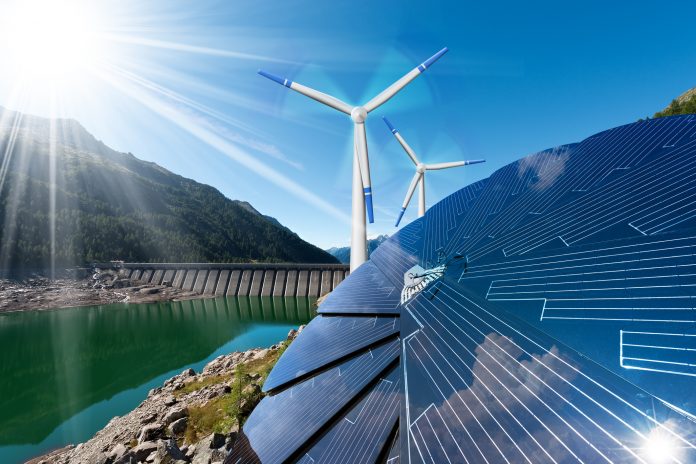KARACHI: Pakistan should set a target of generating at least 30 per cent of its electricity on the basis of renewable energy in the next five to seven years as this is the only way to tackle the power crisis that is expected to exacerbate amid depleting hydrocarbon resources and increasing fuel costs.
Alternative Energy Development Board (AEDB) Chief Executive Officer (CEO) Amjad Ali Awan stated this here on Thursday as the keynote speaker at the inaugural session of the Third International Wind Energy Summit-2018 organised by Energy Update in collaboration with the Sindh Energy Department.
“This is the current global trend as everyone concerned in the outside world including international agencies and donors are ready to fully support us more than any other form of energy so there is no other viable option for us other than working to develop and expand our renewable energy sector,” said Awan on the occasion.
He said that Pakistan has to increase its reliance on renewable energy for power generation as at present, indigenous resources of natural gas account for 24 per cent electricity produced in the country; and soon, an alternative has to replace this source in view of fast depleting gas resources.
He added that Re-gasified Liquefied Natural Gas (RLNG) was being imported to replace the reliance on indigenous gas reserves as up to 63 per cent of RLNG being brought into the energy system of the country was being used to generate power.
The AEDB chief said that the basis of power generation through RLNG was not a feasible option from the consumer’s point of view as electricity produced has phenomenally higher tariff up to Rs9.02/kilowatt per hour.
He said that alternative resources of energy were the most viable option on basis of which electricity was being generated all over the world with the lowest tariff for the maximum economic benefit of consumers. “Whereas the import of oil here only accounts for 81 per cent of our fiscal deficit,” said Awan.
“At present 57 countries of the world have been aiming for 100 per cent power generation on basis of renewable energy in the near future as there are countries like Germany and Denmark, which have been generating over 60 per cent of their electricity on the basis of alternative resources of power.
Pakistan should feature among the list of such promising countries as it has an abundance of natural resources to set such a viable target,” he said.
He said that there was no other way for Pakistan other than to move forward in the arena of renewable energy with consistent, long-term, and concrete policies that define clear and high targets to be achieved by prospective investors from within and outside the country.
Speaking as the chief guest on the occasion, Sindh Energy Minister Imtiaz Ahmed Shaikh said that Sindh had been host to the only properly designated wind corridor in the country between Gharo and Jhimpir whose potential was being tapped to generate electricity through wind power.
He said that electricity generation on basis of wind power in the Gharo-Jhimpir corridor had crossed the mark of 01 Gigawatt with the commissioning of over 20 wind power plants.
Commissioning of some 35 more wind power projects in the province is yet to be achieved owing to a number of issues whose resolution has been pending with different federal authorities including problems related to the determination of tariff, connectivity to the national grid, and lack of transmission systems.




